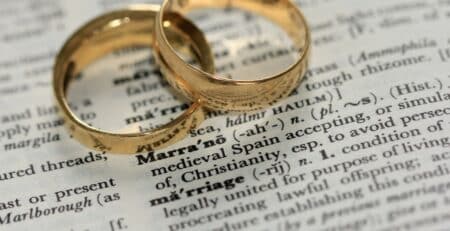Contesting a Will Due to Lack of Due Execution
We also have expertise with various other options for contesting a Will, including:
Contesting a Will Due to Lack of Due Execution
For a Will to be considered valid, various legal formalities need to be followed when it is written or amended. Where any of these procedures are not followed or mistakes are made, it may be possible to contest the Will. This is something our contentious probate solicitors will be able to help you with.
At Tinsdills Solicitors, our contentious probate solicitors have experience in handling a wide variety of legal disputes, meaning we are well placed to support you in challenging a Will based on a lack of due execution. We can take you through the entire process of both bringing and defending a claim, ensuring you have all the support you need to secure a positive outcome.
Our expertise in negotiation will help you to achieve the right settlement as smoothly as possible. However, we will not advise you to take a bad settlement and will support you through the court process if this becomes necessary.

Our team also have a wide range of expertise in other matters related to contested Wills, Trusts and Probate. Find out more about these services here.
To discuss contesting a Will due to lack of due execution with one of our contentious probate solicitors in Hanley, Leek, Newcastle-Under-Lyme or Sandbach, please call 01782 652300 or use the enquiry form on the right hand side of the page.
Our Expertise with Contesting Wills Due to Lack of Due Execution
If you have been left out of a Will or have been unfairly treated by the terms of a Will, and you believe the correct legal procedures when it was written or amended, you may be able to make a claim for lack of due execution.
If any of the various legal formalities were not correctly followed when a Will was initially created or amended, it cannot be considered valid. This, in turn, would mean that its terms cannot be upheld. This is an issue which is particularly prevalent with ‘DIY Wills’, where the appropriate legal advice is not sought from a professional.
Our contentious probate solicitors can work alongside you to carefully review the circumstances surrounding the Will and the way it was signed, including the way it was witnessed. Where issues can be identified, we can support you in making a claim for lack of due execution and declaring the Will in question should be deemed invalid.
If you are a beneficiary, and someone has made you aware of their intention to contest a Will on the ground of lack of due execution, this can be an understandably daunting prospect – especially if your inheritance rights are put at risk.
Where you are defending a claim of lack of due execution, our solicitors can collate all of the necessary evidence and information to demonstrate the correct procedures were followed and that the Will should remain valid.
Meet our Dedicated Contested Will Team
Get In Touch With Our Contentious Probate Solicitors Today
Do you want to discuss a contested Will case? We have expertise in this area and more.
With a dedicated team on hand to take you through every step of the process, you can rest assured that we will provide you with the best chance of getting the outcome you deserve.
To arrange an appointment with one of our contentious probate solicitors in
Hanley,
Leek,
Newcastle-Under-Lyme, or Sandbach,
please call 01782 652300 or use the enquiry form on the right hand side of the page.
Lack of Due Execution FAQs
A lack of due execution is ground upon which the legality of Will can be disputed. It is where a Will was not properly executed in accordance with Section 9 of the Wills Act 1837, which provides that a Will can only be considered valid so long as various criteria are fulfilled.
The legal formalities for drafting a Will according to Section 9 of the Wills Act 1837 are:
- The Will is in writing.
- The Will is signed by the testator or by another person in their presence and by their direction.
- The signature is made or acknowledged in the presence of two or more witnesses who are present at the time.
- The witnesses:
- Attest or sign the Will; or
- Acknowledges the signature
Anyone making a Will in England and Wales must also be 18 or over.
If it can be shown that there was a lack of due execution while the Will was created, it will be considered invalid and will not be used.
This means that the last valid Will made by the testator will be used in its place or, if there is no other Will, the rules of intestacy will be followed.
There are some similarities between contesting a Will due to lack of due execution and fraud or forgery. Lack of due execution will usually be the result of an error due to ignorance rather than malicious intent.
Fraud or forgery will be the result of someone intentionally manipulating a Will, such as faking a signature or someone other than a testator changing the terms of the Will.
Latest News
Visit the Tinsdills blog for great content about the legal sector and beyond.














